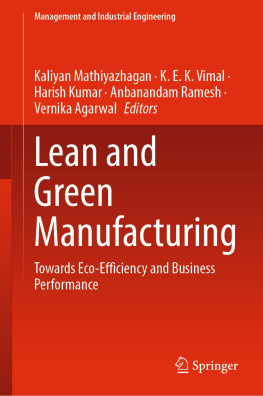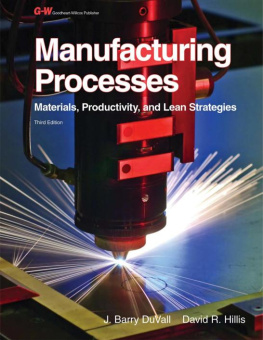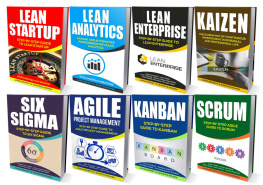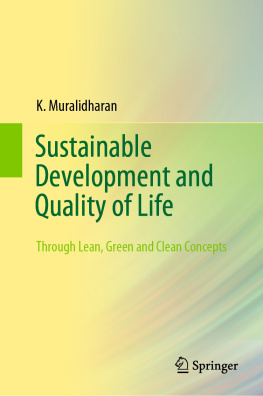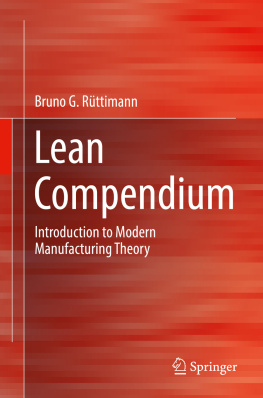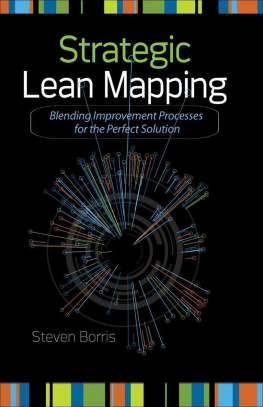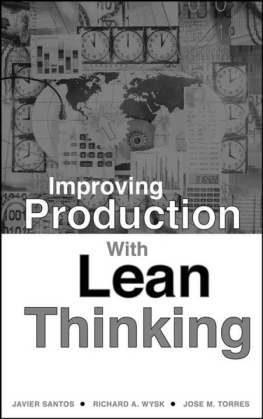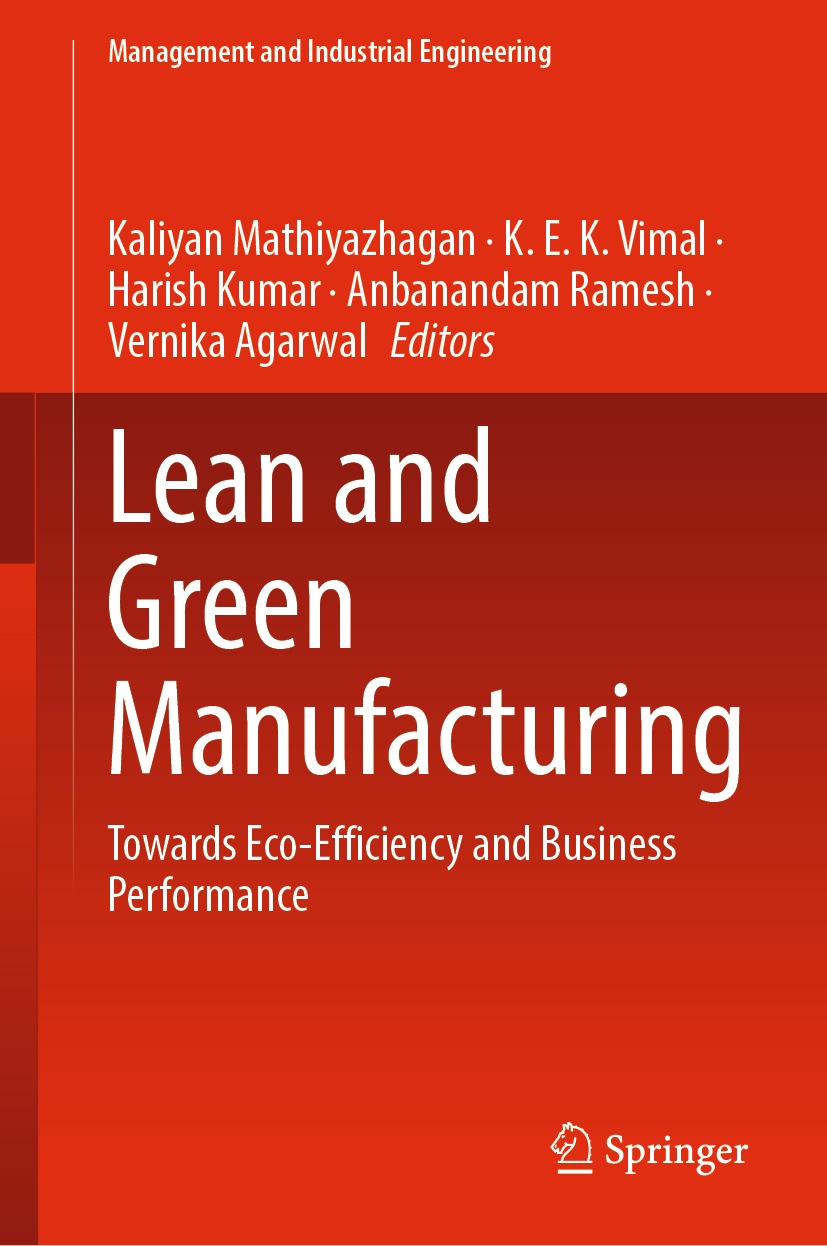Management and Industrial Engineering
Series Editor
J. Paulo Davim
Department of Mechanical Engineering, University of Aveiro, Aveiro, Portugal
This series fosters information exchange and discussion on management and industrial engineering and related aspects, namely global management, organizational development and change, strategic management, lean production, performance management, production management, quality engineering, maintenance management, productivity improvement, materials management, human resource management, workforce behavior, innovation and change, technological and organizational flexibility, self-directed work teams, knowledge management, organizational learning, learning organizations, entrepreneurship, sustainable management, etc. The series provides discussion and the exchange of information on principles, strategies, models, techniques, methodologies and applications of management and industrial engineering in the field of the different types of organizational activities. It aims to communicate the latest developments and thinking in what concerns the latest research activity relating to new organizational challenges and changes world-wide. Contributions to this book series are welcome on all subjects related with management and industrial engineering. To submit a proposal or request further information, please contact Professor J. Paulo Davim, Book Series Editor, pdavim@ua.pt
More information about this series at http://www.springer.com/series/11690
Editors
Kaliyan Mathiyazhagan , K. E. K. Vimal , Harish Kumar , Anbanandam Ramesh and Vernika Agarwal
Lean and Green Manufacturing
Towards Eco-Efficiency and Business Performance
1st ed. 2022

Logo of the publisher
Editors
Kaliyan Mathiyazhagan
Operations and Quantitative Methods, Thiagarajar School of Management, Madurai, India
K. E. K. Vimal
Department of Mechanical Engineering, National Institute of Technology, Patna, India
Harish Kumar
Department of Mechanical Engineering, National Institute of Technology Delhi, Delhi, India
Anbanandam Ramesh
Department of Management Studies, Indian Institute of Technology Roorkee, Roorkee, Uttarakhand, India
Vernika Agarwal
Amity International Business School, Amity University, Noida, Uttar Pradesh, India
ISSN 2365-0532 e-ISSN 2365-0540
Management and Industrial Engineering
ISBN 978-981-16-5550-0 e-ISBN 978-981-16-5551-7
https://doi.org/10.1007/978-981-16-5551-7
Springer Nature Singapore Pte Ltd. 2022
This work is subject to copyright. All rights are reserved by the Publisher, whether the whole or part of the material is concerned, specifically the rights of translation, reprinting, reuse of illustrations, recitation, broadcasting, reproduction on microfilms or in any other physical way, and transmission or information storage and retrieval, electronic adaptation, computer software, or by similar or dissimilar methodology now known or hereafter developed.
The use of general descriptive names, registered names, trademarks, service marks, etc. in this publication does not imply, even in the absence of a specific statement, that such names are exempt from the relevant protective laws and regulations and therefore free for general use.
The publisher, the authors and the editors are safe to assume that the advice and information in this book are believed to be true and accurate at the date of publication. Neither the publisher nor the authors or the editors give a warranty, expressed or implied, with respect to the material contained herein or for any errors or omissions that may have been made. The publisher remains neutral with regard to jurisdictional claims in published maps and institutional affiliations.
This Springer imprint is published by the registered company Springer Nature Singapore Pte Ltd.
The registered company address is: 152 Beach Road, #21-01/04 Gateway East, Singapore 189721, Singapore
Preface
In recent years, many companies have established a fundamental goal to minimize the environmental impact while maintaining high quality and service for all business processes and products. This growing concern for environmental issues prompts organizations to incorporate greening initiatives into their supply chain operations. The preliminary step in this direction is to identify the environmental concerns and take appropriate measures to reduce them. Green manufacturing is part of a continuous improvement strategy to help manufacturers improve their productivity, profitability, and competitiveness.
Recently, a few organizations approaching toward green manufacturing have tried to use it as a marketing tool to attain an edge over their competitors. Only a few organizations show real concerns over adopting green manufacturing practices due to their associated economic investments. The primary aim of greening manufacturing is to coordinate the production activities within the supply chain to reduce waste and maximize the use of clean technology to meet the organizations needs at the least cost to the environment. Thus, manufacturing organizations needs to streamline their operations by eliminating wastes and non-value-added activities. Lean principles involve a systematic approach to identifying and eliminating waste and non-value-added activities through continuous improvement, which is also the key to enhance environmental performance. The manufacturers are starting to realize that the mission to become greener takes them right back to the lean manufacturing approach.
The key to achieving these challenges is by changing the companys decision-making processes to incorporate environmental aspects, be in the form of green or lean SC operations, which will affect the operations overall environmental cost. Reducing the raw materials and inventory helps not only the environment but also your bottom line. Additionally, developing more sustainable practices will help you comply with local, federal, and global environmental initiatives and might even earn you some excellent incentives from your state or local government. And last but not least, there is the benefit of working toward a greener future by reducing pollutants and other forms of waste that harm our planet. The purpose of these supply chain initiatives is to reduce both costs and wastes. Conventional decision-making approaches commonly overlook or inadequately represent the costs and benefits of departments outside the decision-makers area. These developments led to few unanswered questions like how to integrate the tools and the complications in correlating the two paradigms that are still not answered. Further, the analytical and scientific methods to support practitioners were not explicitly discussed in the past.
This book is planned to provide a stage-by-stage integration of lean and green manufacturing paradigms to achieve environmental and economic benefits. The books various chapters are expected to support the practicing managers during the implementation of integrated lean and green manufacturing paradigms. The book chapters will be organized into three parts: (1) conceptualizing integrated lean and green manufacturing paradigms; (2) tools and techniques for integrated lean and green paradigms, and (3) case studies demonstrating the implementation of integrating lean-green paradigms.

